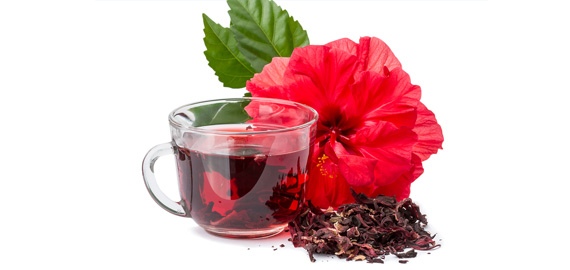Hibiscus is a bushy annual plant. Parts of the flower are used to make a popular drink in Egypt called Karkade. Various parts of the plant are also used to make jams, spices, soups, and sauces. The flowers are used to make medicine.
Contents
Uses
- Hibiscus is a bushy annual plant. Parts of the flower are used to make a popular drink in Egypt called Karkade. Various parts of the plant are also used to make jams, spices, soups, and sauces. The flowers are used to make medicine.
- Hibiscus is used for treating loss of appetite, colds, heart and nerve diseases, upper respiratory tract pain and swelling (inflammation), fluid retention, stomach irritation, and disorders of circulation; for dissolving phlegm; as a gentle laxative; and as a diuretic to increase urine output.
- In foods and beverages, hibiscus is used as a flavoring. It is also used to improve the odor, flavor, or appearance of tea mixtures.
Benefits
- The fruit acids in hibiscus may work like a laxative. Some researchers think that other chemicals in hibiscus might be able to lower blood pressure; decrease spasms in the stomach, intestines, and uterus; and work like antibiotics to kill bacteria and worms.
Cautions
- Hibiscus is LIKELY SAFE for most people in when consumed in food amounts. It isPOSSIBLY SAFE when taken by mouth appropriately in medicinal amounts. The possible side effects of hibiscus are not known.
- Pregnancy and breast-feeding: Hibiscus is POSSIBLY UNSAFE when taken by mouth during pregnancy. There is some evidence that hibiscus might startmenstruation, and this could cause a miscarriage. There is not enough reliable information about the safety of taking hibiscus if you are breast-feeding. Stay on the safe side, and avoid use.
- Diabetes: Hibiscus might decrease blood sugar levels. The dose of your diabetes medications might need to be adjusted by your healthcare provider.
- Low blood pressure: Hibiscus might lower blood pressure. In theory, taking hibiscus might make blood pressure become too low in people with low blood pressure.
- Surgery: Hibiscus might affect blood sugar levels, making blood sugar control difficult during and after surgery. Stop using hibiscus at least 2 weeks before a scheduled surgery.
Interactions
Minor Interaction Be watchful with this combination
- Acetaminophen (Tylenol, others) interacts with HIBISCUS: Drinking a hibiscus beverage before taking acetaminophen might increase how fast your body gets rid of acetaminophen. But more information is needed to know if this is a big concern.
Other Names
Ambashthaki, Bissap, Gongura, Groseille de Guinée, Guinea Sorrel, Hibisco, Hibiscus Calyx, Hibiscus sabdariffa, Jamaica Sorrel, Karkade, Karkadé, Oseille de Guinée, Oseille Rouge, Pulicha Keerai, Red Sorrel, Red Tea, Rosa de Jamaica, Roselle, Sour Tea, Sudanese Tea, Thé Rose d’Abyssinie, Thé Rouge, Zobo, Zobo Tea.
References
Source: WebMD, “Hibiscus” , http://www.webmd.com/vitamins-supplements

